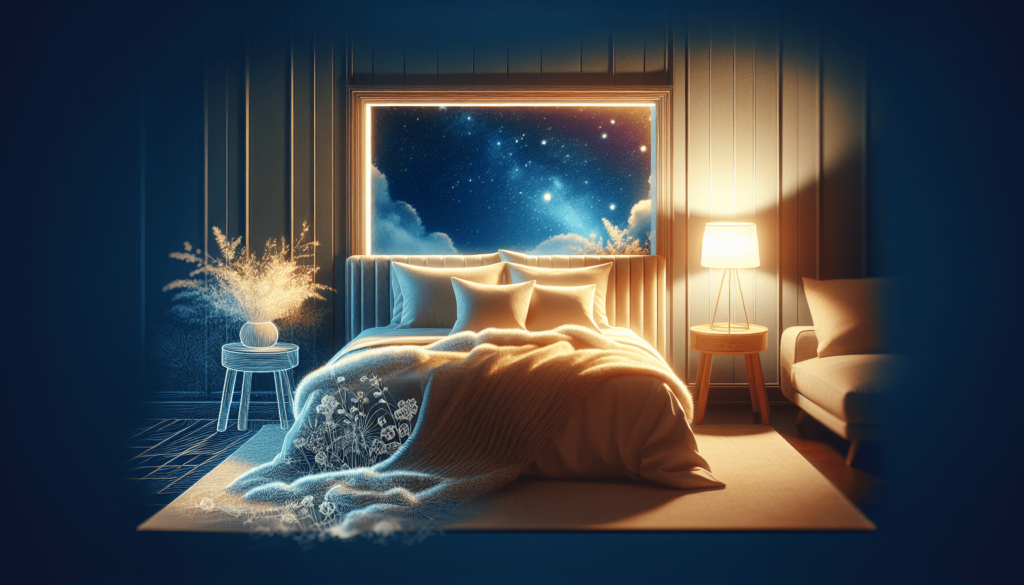Have you ever wondered why, despite attempting every diet known to humanity and sweating buckets at the gym, those stubborn pounds refuse to leave your body as if they’ve signed a long-term lease? You might be overlooking a crucial factor: sleep. Yes, sleep—that marvelous state where you get to shut out the world and pretend adulting isn’t a thing for a few blissful hours.

Why Sleep is as Important as Your Gym Routine
The Mystery of Sleep
Let’s start with the basics: sleep is a period of rest for your body and mind, like an all-inclusive spa day but without the exorbitant price tag. While you’re dreaming of winning a million dollars or flying over rainbow-colored canyons, a whole host of processes takes place. Your muscles repair, your brain consolidates memories, and your body resets its metabolic functions. Think of sleep as the forgotten hero of your wellness journey—quietly working behind the scenes to make everything better.
Sleep and Metabolism: The Unlikely Duo
Metabolism isn’t just that elusive thing your friend with abs talks about. It’s the rate at which your body transforms food into energy. When you’re sleep-deprived, your metabolism doesn’t work as efficiently as it should. You may feel lethargic and your body starts to store fat like a squirrel hoarding nuts for the winter. But, when well-rested, your metabolism behaves like a loyal pet, burning calories efficiently and helping you maintain an optimal weight.
Hormones: The Real Puppet Masters
Ghrelin and Leptin: The Hunger Hormones
Two hormones are responsible for your feelings of hunger and satiety: ghrelin and leptin. Ghrelin is the mischievous troublemaker that increases appetite, while leptin is the sensible adult telling you to stop eating. Guess what? A lack of sleep sends ghrelin levels soaring and leptin levels plummeting. Net result? You’re raiding the fridge at midnight, convinced that a tub of ice cream is a dietary necessity.
Cortisol: The Stress Conductor
Cortisol, your body’s stress hormone, deserves a special mention. Elevated cortisol levels, thanks to lack of sleep, tell your body to hang on to fat as if it’s an emergency supplies kit. Naturally, your attempts to lose weight are thwarted as your body thinks it’s preparing for the apocalypse.

Sleepless Nights and Your Workout Routine
Zombie Workouts: Not So Effective
Let’s be honest: when you haven’t had enough sleep, your idea of a workout might involve dragging yourself from the couch to the fridge. Even if by some miracle you make it to the gym, your tired muscles aren’t performing at their peak. You’re more prone to injury, less motivated, and let’s face it, you’re not impressing anyone with those half-hearted burpees.
Muscle Repair and Growth
Actual muscle repair and growth happen not in the gym but during sleep. This is when your body produces growth hormone, which is crucial for tissue growth and muscle recovery. So, if you’re skipping sleep, you’re essentially sabotaging your muscle gains. Don’t be that person.
Sleep: The Ultimate Recovery Tool
The Importance of REM and Deep Sleep
Sleep isn’t one-size-fits-all; it has stages. The two you should be best friends with are REM (Rapid Eye Movement) and Deep Sleep. REM sleep is crucial for cognitive functions like memory and emotional regulation—a.k.a., it keeps you from turning into a cranky mess. Deep Sleep, on the other hand, is where the magic happens for muscle repair and immune system strengthening.
Sleep Cycles
A sleep cycle usually lasts around 90 minutes and includes multiple stages of sleep. To wake up feeling like a superhero, you need about 4-6 of these cycles per night. That’s roughly 7-9 hours of sleep. Yes, I know—you’re busy plotting world domination, watching cat videos, or contemplating the meaning of life at 2 AM, but maybe give sleep a priority pass?
How to Ensure You Get Quality Sleep
Pre-Sleep Rituals
Consistency is not just for your skincare routine but your sleep as well. Establish a calming pre-sleep ritual: it could be a warm bath, reading a book, or listening to whale sounds (if that’s your thing). Avoid screens since the blue light is like the anti-sleep fairy, and keep your room cool, dark, and quiet.
The Bed: Your New Best Friend
You should treat your bed like a sanctum. That means it’s not for work, and definitely not for eating crunchy snacks while binging the latest season of “Stranger Things.” Invest in a good mattress and pillows. Your back will thank you, and you’ll feel an overwhelming sense of gratitude next time you slip between those sheets.
How to Track Your Sleep and Improve It
Sleep-Tracking Apps
Technology isn’t just for reminding you that you’ve hit your daily step goal. Many sleep-tracking apps can help you understand your sleep patterns. Knowing your sleep efficiency, REM cycles, and the like can provide actionable insights. So next time you’re sleep-deprived, you can pinpoint whether it was that extra espresso or the late-night TikToking that did you in.
Professional Help
If you’re still struggling despite giving it your best shot, it might be time to consult a sleep expert. Sometimes, underlying conditions like sleep apnea could be at play. No shame in admitting you need help—life’s too short to spend it yawning.
The Role of Napping
The Power Nap
Napping is an underappreciated art form. A quick 20-30 minute nap can recharge your batteries without throwing off your nighttime sleep cycle. Think of it as a shot of espresso but without the jitters.
| Nap Duration | Benefits |
|---|---|
| 10-20 minutes | Boosts alertness, mood, and performance |
| 60 minutes | Improves cognitive memory processing |
| 90 minutes | Full sleep cycle, improves creativity and emotional resilience |
When Napping Goes Wrong
There is a fine line between napping and sleeping the day away like a Trust Fund baby. Oversleeping can confuse your internal clock, making it harder to get quality sleep at night. Stick to controlled power naps and not an all-you-can-sleep buffet.
The Myths and Facts About Sleep
Myth: You Can “Catch Up” on Sleep
Binge-sleeping over the weekend does not erase the deficit you’ve accumulated during the week. Your body needs consistent sleep. It’s like saying you can eat only on weekends and expect to stay nourished—you’re just setting yourself up for a world of grumpy Mondays.
Fact: Sleep Affects Your Mental Health
If you think lack of sleep only affects your physical well-being, think again. Poor sleep quality can lead to a litany of mental health issues including anxiety, depression, and even hallucinations if you’re really pushing the envelope. Basically, your brain needs sleep to function properly, just like your phone needs to be charged.
In conclusion, if you want to lose weight and get fit, you need to think of sleep as your secret weapon. It’s just as important, if not more so, than diet and exercise. So, next time you’re tempted to pull an all-nighter, remember: even superheroes need their beauty sleep.
